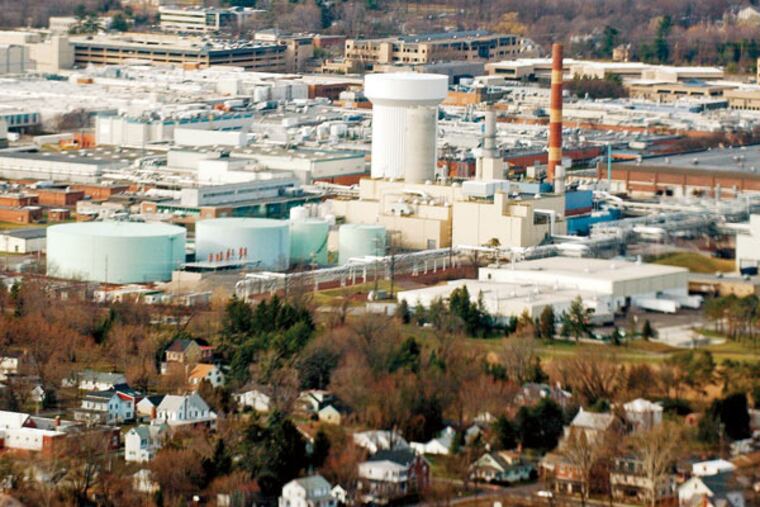Merck labor friction spills out
Tension over past and future layoffs at pharmaceutical giant Merck & Co. spilled into the public domain Tuesday evening as a written exchange between CEO Ken Frazier and a union leader cast doubt on the safety of workers and people living near Merck's factory in West Point, Montgomery County.

Tension over past and future layoffs at pharmaceutical giant Merck & Co. spilled into the public domain Tuesday evening as a written exchange between CEO Ken Frazier and a union leader cast doubt on the safety of workers and people living near Merck's factory in West Point, Montgomery County.
"I dread but expect the day when someone forced to work a double shift [16 hours] gets in their car after work, drives home, and falls asleep at the wheel, hurting themselves, someone else, or someone else's child," wrote Dan Bangert, a 29-year Merck employee and president of United Steelworkers Union Local 10-00086. Bangert wrote an internal company blog post on July 30, and it was reposted on the union website Tuesday evening, along with an exchange of e-mails between Bangert and Frazier.
Bangert wrote - and other workers have told The Inquirer - that Merck's decision to cut thousands of jobs to please Wall Street has resulted in middle managers forcing workers to accept 16-hour shifts or face termination. Fatigue increases danger of injury at the plant, they said, and on the way home.
The frustration flared when Frazier announced July 28 that all employees, except union members, would get an extra day off as a sign of appreciation for their efforts.
"Separate from your comments regarding the additional day off," Frazier wrote to Bangert, "we want to ensure that we are addressing the other concerns you have raised. Merck goes to great lengths to protect the safety and well-being of our employees. Leadership from MMD [Merck Manufacturing Division] and Human Resources will work with local site leaders to address your concerns directly."
The National Labor Relations Board and the Occupational Safety and Health Administration have pending cases against Merck. The Food and Drug Administration also is familiar with West Point. In 2013, Merck recalled 743,360 vials of the human papillomavirus vaccine Gardasil because of "the potential for small glass particles to be present in the vial."
Merck has about 69,000 employees worldwide, with about 31 percent represented by unions. The steelworkers' union represents about 1,800 of the roughly 9,700 employees at the West Point and Upper Gwynedd operations.
The son of a janitor and a homemaker, Frazier, 59, graduated from Philadelphia's Northeast High, Pennsylvania State University, and Harvard Law School. Since becoming Merck CEO on Jan. 1, 2011, Frazier has narrowed the focus to what he hopes are high-profit specialty medicines and disposed of business divisions, research programs, factories, and people that he didn't think offered the same promise.
Two layoff programs, the second started by Frazier in 2013, will eliminate about 40,000 jobs, with nearly 2,000 still to be cut by the end of 2016. Merck says it will hire for key posts.
Meanwhile, Frazier's pay skyrocketed in the last year, according to SEC filings, with total compensation rising from $13.4 million in 2013 to $25 million in 2014. The increase was mostly stock awards. On Dec. 31, 2010, the day before Frazier became CEO, the stock price was $36.04.
Merck's share price at Wednesday's close was unchanged at $59.66.